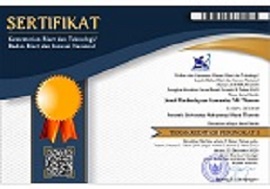Nutrition Education and Sweetened Beverages as an Effort to Prevent Overnutrition and Non-Communicable Diseases in Adolescents
DOI:
https://doi.org/10.37012/jpkmht.v7i2.2886Abstract
Sugar-sweetened beverages (SSBs) are drinks that contain added sugar or other sweeteners, which, if consumed excessively over a long period of time, can increase the risk of non-communicable diseases. The 2023 Indonesia Health Survey reported that 48.6% of adolescents aged 15–19 years consumed SSBs 1–6 times per week. Easy access to SSBs contributes to frequent consumption. Muhammadiyah Senior High School Cileungsi is one example of a school with wide access to SSBs, available in the canteen, school cooperative, and vendors around the school. Nutrition and SSB education activities are therefore needed to improve knowledge and support the prevention of overweight and non-communicable diseases. The results of the activity showed that prior to education, all students had consumed SSBs, with an average frequency of 1–3 times per week, while many reported daily consumptions, even more than once per day. Following the educational intervention, a positive change in students’ knowledge was observed, as reflected in an increased percentage of correct answers in most post-test items compared to the pre-test. Continuous education is required to shape adolescents’ attitudes and encourage healthier food and beverage consumption behaviors. Collaboration among families, health professionals, and schools is essential to create a supportive environment through policies aimed at limiting SSB consumption.
Downloads
Published
Issue
Section
Citation Check
License
Copyright (c) 2025 Annisa Nursita Angesti, Sarah Mardiyah, Kartika Wandini

This work is licensed under a Creative Commons Attribution 4.0 International License.
Jurnal Pemberdayaan Komunitas MH Thamrin allows readers to read, download, copy, distribute, print, search, or link to the full texts of its articles and allow readers to use them for any other lawful purpose. The journal allows the author(s) to hold the copyright without restrictions. Finally, the journal allows the author(s) to retain publishing rights without restrictions Authors are allowed to archive their submitted article in an open access repository Authors are allowed to archive the final published article in an open access repository with an acknowledgment of its initial publication in this journal.

Lisensi Creative Commons Atribusi 4.0 Internasional.













